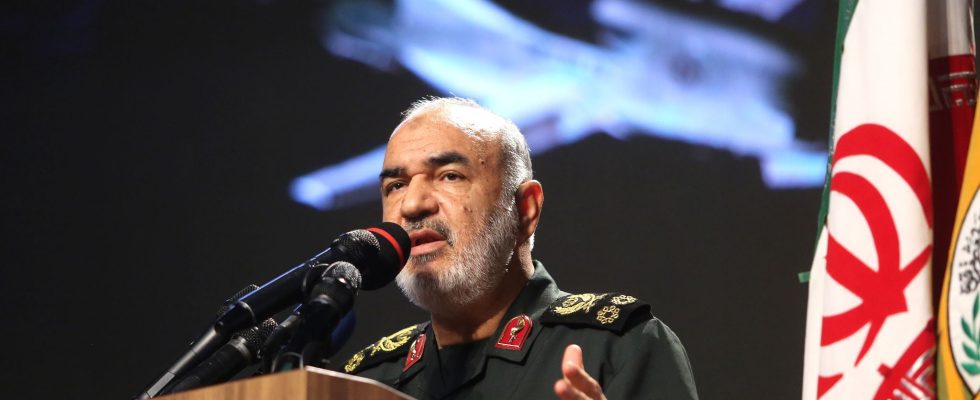In the Middle East, tensions continue to grow. The Iranian Revolutionary Guards announced on Tuesday, January 16, that they had launched several salvos of ballistic missiles against “terrorist” targets in Iraq and Syria. A few hours later, Iraqi authorities summoned the Iranian charge d’affaires to Baghdad.
In Iraqi Kurdistan, at least “four civilians” were killed and six others injured in Iranian missile fire, according to the authorities of the autonomous region, specifying that some injured were in “critical condition”.
According to the Ministry of Foreign Affairs, these strikes were the result of a “targeted operation” consistent with “the legitimate rights” of the country to “defend its security”. They intervene in a tense regional context, against a backdrop of war in Gaza between Israel and Palestinian Hamas which raises fears of a regional conflagration between the allies of the two camps.
On the outskirts of Erbil, capital of autonomous Kurdistan in northern Iraq, the Iranian Revolutionary Guards claimed to have targeted and destroyed “a spy headquarters” – which they attributed to Israel – as well as a “gathering of anti-Iranian terrorist groups”, according to the official IRNA news agency.
Furthermore, the Guards Corps claimed, on its Sepah News website, to have identified in Syria “the gathering places of commanders and the main elements linked to recent terrorist operations, in particular the Islamic State” (IS) and to have them “destroyed by firing a number of ballistic missiles”.
“Unacceptable violations” of Iraqi sovereignty
In response, the Iraqi Foreign Ministry condemned these deadly missile attacks, seeing them as an “aggression targeting the sovereignty of Iraq and the security of its people”.
After these strikes, the authorities assure that they will “take all legal measures” necessary, including “a complaint to the UN Security Council”. Iraqi diplomacy also announced the formation of a commission of inquiry to prove “to Iraqi and international public opinion the falsity of the allegations of those who are responsible for these reprehensible acts.”
In Paris, the Quai d’Orsay denounces “unacceptable violations” of Iraqi sovereignty, contributing “to the escalation of regional tensions. Across the Atlantic, an American official denounced “a series of reckless and imprecise strikes.” The department The American Secretary of State also stressed that the United States was “opposed” to these “irresponsible strikes” which “undermine the stability of Iraq”.
A response to attacks by ISIS and Israel
This attack, according to the Guards Corps, is a “response to the recent crimes of terrorist groups who have unjustly martyred a number of our dear compatriots in Kerman [dans le sud de l’Iran] and Rask”.
On January 3, attackers carried out a suicide attack against the crowd gathered in Kerman, during a memorial ceremony near the tomb of General Qassem Soleimani, the former architect of Iranian military operations in the Middle East, killed in January 2020 by an American strike in Iraq. Nearly 90 people died following this attack, claimed by ISIS.
Furthermore, according to the IRNA news agency, the attack in Erbil comes in retaliation for the recent assassinations of several commanders of the Revolutionary Guards but also of leaders of the “axis of resistance” – the name given to Tehran’s allies in his fight against Israel.
As a reminder, on January 2, in the southern suburbs of Beirut, a strike attributed to the Hebrew State killed Hamas number two, Saleh al-Arouri, and six other officials and executives of the Palestinian Islamist movement.
